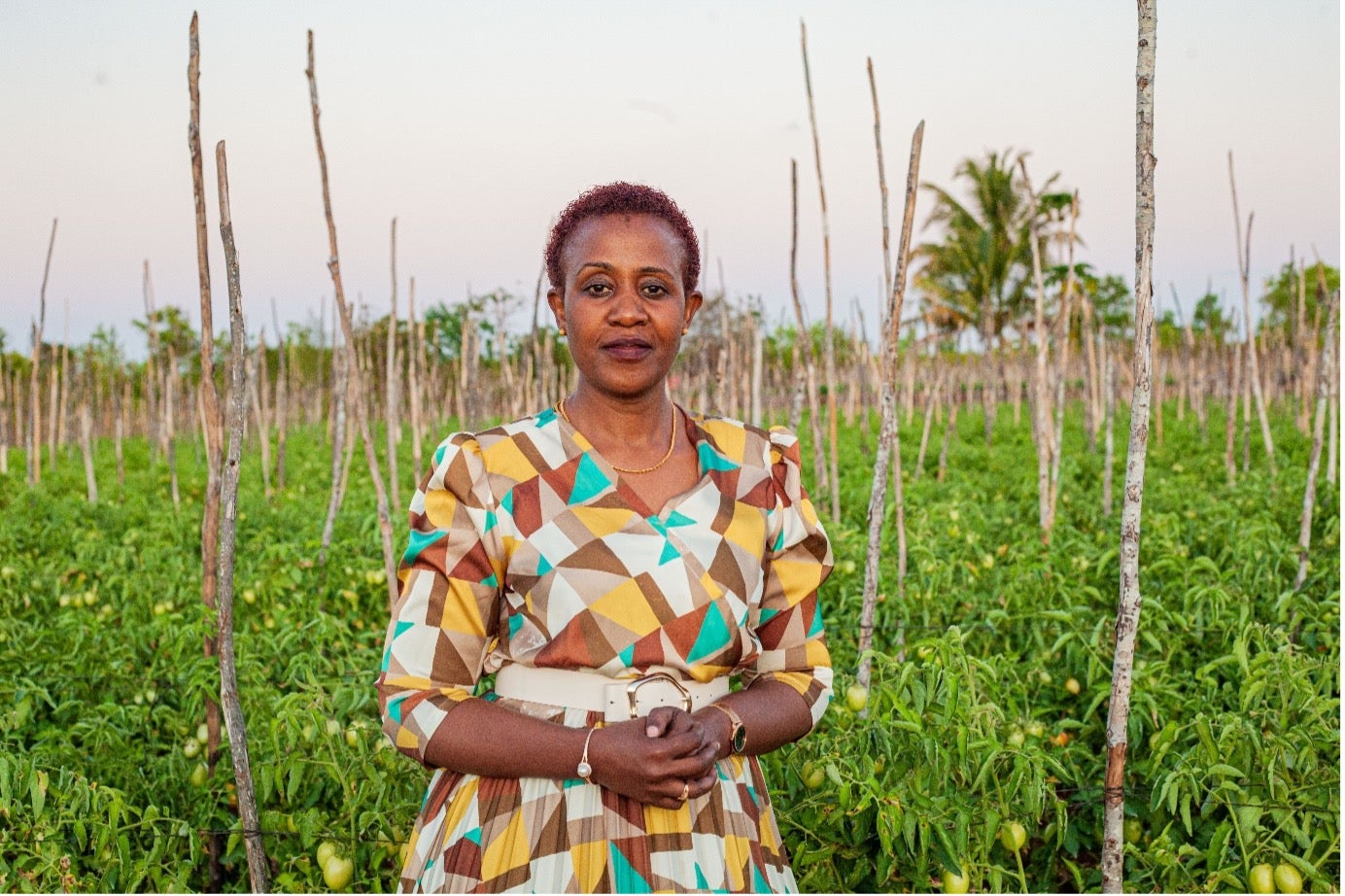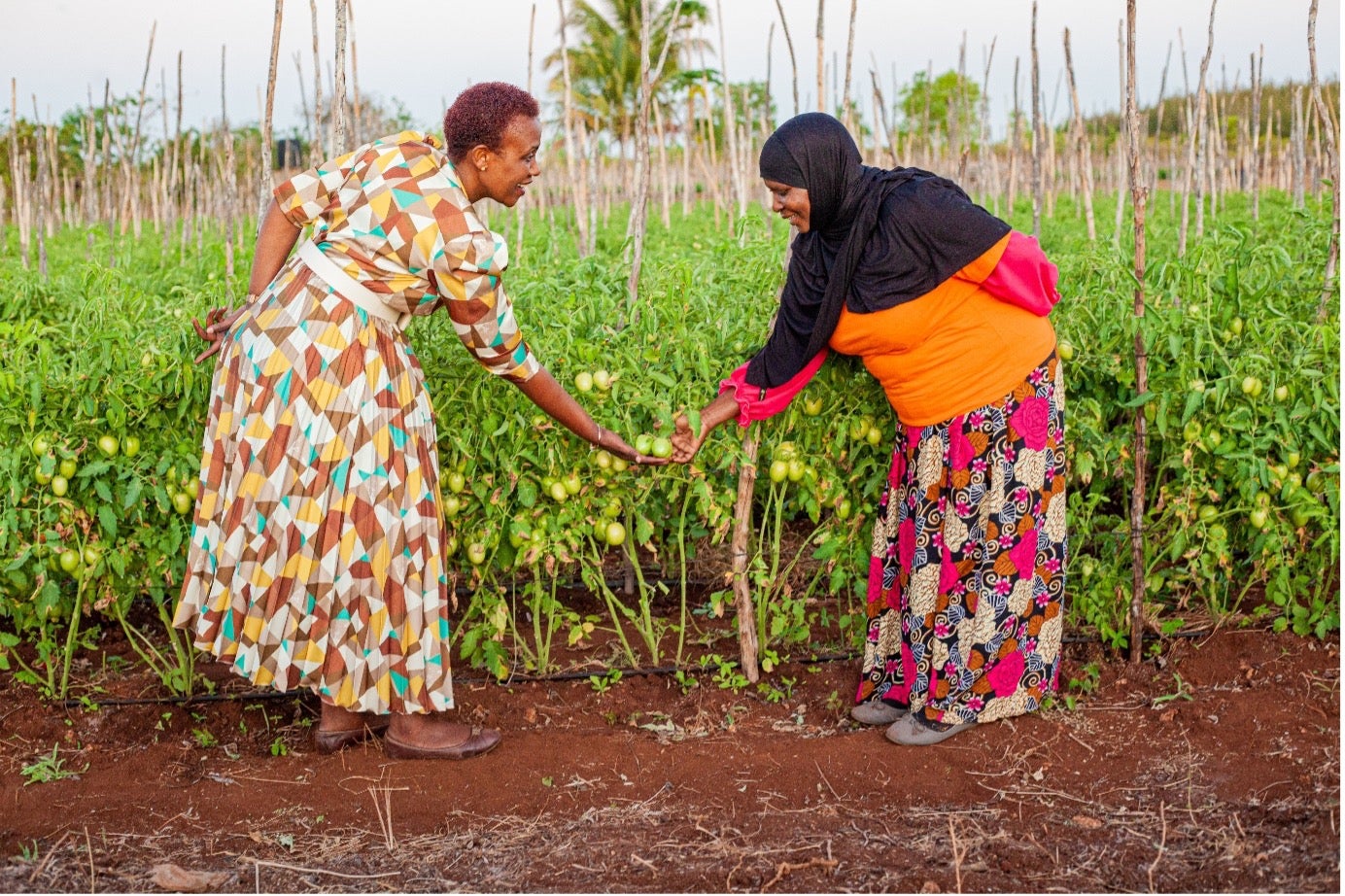Take Five: “Without food there is no economic transformation, and women are the engine towards economic transformation in our countries because they are the drivers of food systems in Africa.”
Date:
Women play a crucial role in the food systems of Africa. From growing and harvesting crops to selling produce at local markets, women are at the forefront of ensuring food security and sustaining the livelihoods of their communities.
Despite the significant contribution of women to food systems, they continue to face challenges that hinder their full participation. Women are disproportionately affected by gender-based violence, which can undermine their physical and mental health, as well as limit their ability to participate in the workforce. Additionally, women's unpaid care work responsibilities leave them with limited time to engage in income-generating activities, further exacerbating their economic vulnerability.
Limited access to resources, including land, water, and agricultural inputs, coupled with limited access to education, information and training, poor infrastructure, gaps in government policies, and limited access to credit and financial services further restrict women's participation in food systems. These challenges perpetuate gender inequalities and hinder the creation of more sustainable and resilient food systems in the region. Recognizing the critical role of women in food systems and addressing the underlying barriers they face is essential to promoting gender equality and achieving sustainable development.
Jacqueline Mkindi is the Chief Executive Officer of the Tanzania Horticultural Association (TAHA). Through a KOICA funded UN Women and UNFPA joint programme on 'Realizing Gender Equality through Empowering Women and Adolescent Girls', UN Women partnered with TAHA to address these challenges by using technology and innovation to advance the productivity of women and youth venturing in horticultural farming in Tanzania.

Tell us more about this program that you're implementing these two provinces? What's the purpose of this program?
Taha is an apex private sector member responsible for horticulture development in Tanzania. Through UN Women we have been working with farmers and other value chain actors in Singida, particularly in Ikungi district, but also in Shinyanga in a district called Msalala District council.
Through this partnership, women and female youth are empowered through horticulture value chains, which provide them with access to new technologies and innovations that improve productivity. We also provide training on how to properly consume what they produce, helping them to maximize the nutritional value of their crops.
Moreover, we recognize that access to markets is critical for the sustainability of farmers' livelihoods. To this end, we have interventions that facilitate access to both domestic and regional markets, providing farmers with information about the market and empowering them to negotiate better with traders. Finally, we build markets for vegetables and fruit for the farmers, creating a sustainable market that benefits both producers and consumers.
Can you tell you more about these technologies that you mentioned?
The agronomic technologies that we drive have proven to be essential in helping women to save time and address other social responsibilities. One of the technologies we train them on is efficient irrigation techniques, which helps to reduce the amount of time and labour needed to water crops. By using drip irrigation and other efficient irrigation methods, women are now able to save time and energy, allowing them to engage in other productive activities and to have time to rest.
Another technology that we encourage farmers to adopt is good fertilization methods, since traditional methods of applying fertilisers directly are often time-consuming and labour-intensive. Instead, we support farmers to build the necessary infrastructure to apply fertilizer, which not only saves them time, but also ensures that the right amount of nutrients is applied to the crops, resulting in better yields and improved soil fertility. By adopting these agronomic technologies, women are better able to balance their farming responsibilities with their other social roles.
Do you work with the government on this programme?
By strengthening the capacity of local government authorities to adopt gender-responsive, sustainable and climate-smart agriculture techniques, we are not only improving production and productivity but also building the foundation for a thriving agricultural ecosystem.
Our approach is designed to create a multiplier effect that goes beyond individual farmers. By empowering local communities and the broader region, we are helping to create a sustainable and resilient agricultural sector that can withstand economic shocks and climate change. This requires a strong entrepreneurial mindset that is focused on creating long-term impact and building sustainable value chains.
Moreover, our approach is focused on creating opportunities for women and youth entrepreneurs to thrive. By providing them with the necessary skills and knowledge to adopt sustainable and climate-smart agricultural practices, we are helping to build a new generation of entrepreneurs who are equipped to succeed in the agricultural sector. This, in turn, will create more economic opportunities for the wider community and contribute to the development of a vibrant and sustainable agricultural economy.
We address challenges related to policy, regulation, and operational procedures in a timely manner to ensure profitability and viability for farmers.
Are there any stories of change?
As a result of our project, women who were previously engaged in subsistence farming have been empowered to transition to commercial farming. By providing them with access to technology, knowledge, and markets, we have helped them to increase their productivity and income, leading to significant improvements in their quality of life.
Thanks to this transition, women are now able to provide better education for their children and afford medical and livelihood costs. The shift to commercial farming has created a sustainable source of income, which has enabled them to make critical investments in their families' future. These results demonstrate the effectiveness of our approach, which is designed to create long-term impact and improve the lives of women and their families.
What needs to be done?
Moving forward we need to continue building capacity, especially around practices. We need to continue doing aggressive training on resilience, especially because of the global climate change. Research is also needed to help come up with new varieties that can resist the current harsh climate conditions. We also need to build on the infrastructure to help raise agricultural productivity.
